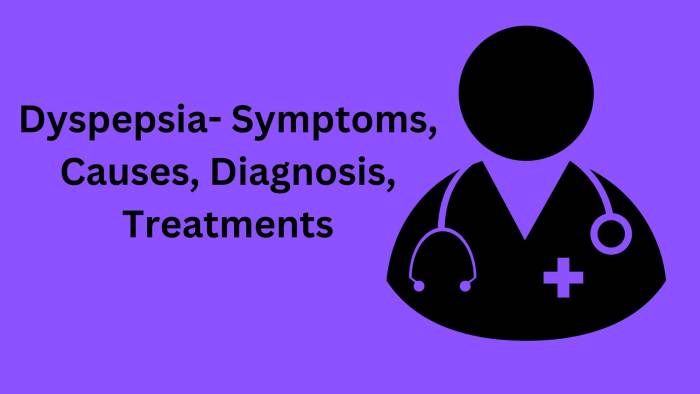
Dyspepsia Symptoms Causes Diagnosis Treatments
What is Dyspepsia(indigestion)?
Indigestion refers to uneasiness or pain in the upper abdomen after drinking or eating. Dyspepsia is a medical term for indigestion. It is not a disease itself but a symptom of gastroesophageal reflux disease and other conditions. Dyspepsia is a common health issue affecting around 20% of population. Common signs are bloating, discomfort, feeling excessive full, nausea and gas.
In most of the situations, it occurs after eating or drinking. Lifestyle changes can help to treat this condition to a much extent.
Indigestion is a term that includes symptoms arising from a problem in upper gut. The gastrointestinal tract is a tube that starts at mouth and ends at anus. The upper side of gut contains oesophagus, stomach and duodenum.
Dyspepsia Symptoms
The main symptoms of indigestion include stomach pain or discomforts in the upper side of abdomen. The other symptoms are-
- Bloating
- Burping
- Rapidly feeling full after eating
- Nausea
- Vomiting
The symptoms of Dyspepsia are commonly related to eating. Heartburn and bitter-tasting liquid felt on the back of throat are most common symptoms.
Common Causes of Dyspepsia
The most common causes of recurring dyspepsia are as follows-
- Non-ulcer dyspepsia- This is also named as functional dyspepsia. Its symptoms are same as irritable bowel syndrome.
- Duodenal and Stomach ulcers-An ulcer that occurs when gut lining is damaged and underlying tissue is bare.
- Duodenitis and gastritis- It is an ulcer that occurs due to inflammation of duodenum or stomach.
- Acid reflux, oesophagitis and GORD- Acid reflux occurs when acid leaks up into oesophagus from stomach.
Diagnosis of Dyspepsia
Depending upon your health history, your clinician may recommend-
- Laboratory tests to check for anaemia or other metabolic disorders
- Breath and stool tests to check for bacterium associated to indigestion.
- Endoscopy to check issues related to your upper digestive tract.
- Imaging tests to check intestinal obstruction or other issues existing.
For right diagnosis, you can consult stomach specialist doctor in Agra for quick healing.
Dyspepsia Treatments
After the initial assessment, based on severity and frequency of symptoms, here are few treatments recommended by best stomach specialist doctor in Agra-
- Lifestyle changes-For all kinds of dyspepsia, the NICE recommends some lifestyle changes that can help to deal with such ailment-
- Eat regular meals
- Try to lose weight
- Avoid smoking
- Avoid drinking alcohol
- Posture- Lying down or inclining forward during day inspires reflux. Sitting curved or close-fitting belts puts an extra pressure on stomach that even worsen any reflux.
- Bedtime- Avoid sleeping immediately after eating. Try not eat anything at least before three hours going to bed.
- Antacids- Taking antacids as required can help to neutralize the stomach acid. A dose can quickly help in offering required relief.



